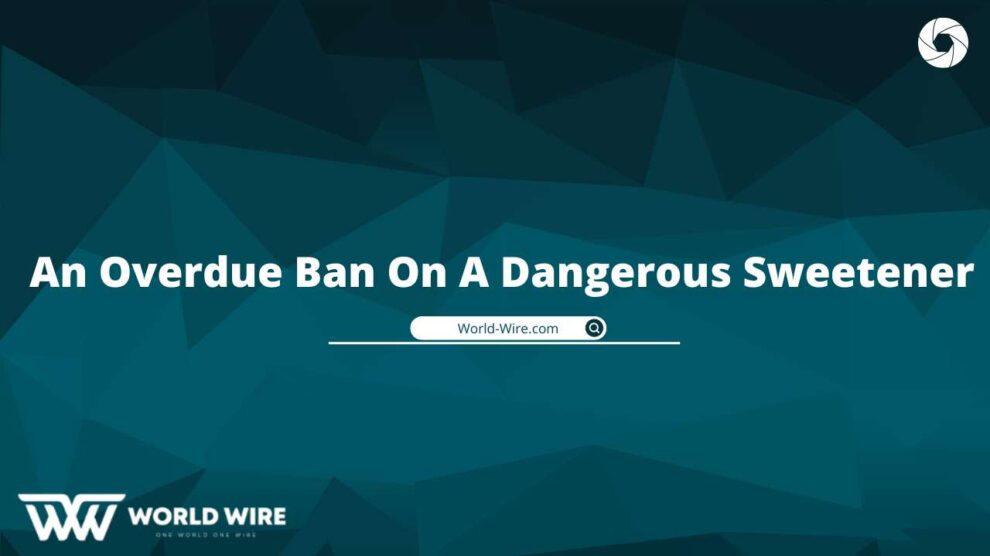It is recommended that humans avoid consuming aspartame, an artificial sweetener that has been shown to cause cancer in laboratory rats, according to the Cancer Prevention Coalition.
A new appointment as Commissioner of the U.S. Food and Drug Administration and public health advocate, Margaret Hamburg, is calling for the continued use of aspartame to be immediately banned under the explicit provisions of the 1958 Delaney Law, which prohibits carcinogenic food additives automatically.
Ajinomoto Sweeteners, the multinational company that manufactures the sweetener, markets aspartame under the names Nutrasweet, Equal, and Canderel. It was discovered by the pharmaceutical company G.D. Searle in 1965.
Artificial sweeteners like aspartame are used by the second most people in the world. There are over 6,000 products in which it is found, including carbonated and powdered soft drinks, hot chocolate, chewing gum, candy, desserts, yogurt, sweeteners, vitamins, and cough drops without sugar. Worldwide, it is consumed by over 200 million people.
In 1974, the FDA approved the sweetener for use. It has been used for more than 30 years.
Around 60% of the market for artificial sweeteners is dominated by aspartame, the most common sweetener after saccharin. Aspartame is consumed by more than 200 million people worldwide.
In comparison to sugar, aspartame provides significant cost savings to food, soft drink, candy and chewing gum manufacturers.
There have been no studies conducted by manufacturers of aspartame on its carcinogenicity.
A cancer prevention coalition chairman warned that aspartame’s use in foods, medicines, and vitamins is the result of a long history of false safety information and political maneuvering.
Aspartame toxicological data was allegedly falsified by Hazleton Laboratories, under contract to Searle, according to then FDA Commissioner Alexander M. Schmidt, MD.
Aspartame could “contribute to the development of brain tumors,” according to a 1980 FDA Public Board of Inquiry investigating its carcinogenic effects in experimental animals.
FDA then recommended that the sweetener be withdrawn from use pending confirmation of these findings, according to Epstein.
In the Bush Administration, Donald Rumsfeld, later Secretary of Defense, vowed to get the sweetener approved by putting his signature on it.
When Searle reapplied for approval to use aspartame as a food sweetener on January 21, 1981, the day after Reagan’s inauguration, he received a 5-person Scientific Commission appointment from Reagan’s new FDA commissioner, Arthur Hayes Hull, Jr., to review the Board of Inquiry’s decision.
Aspartame’s ban was soon upheld by a unanimous vote, but Hull installed a sixth member, resulting in a deadlock. To resolve the deadlock, Hull personally broke the tie.
In 1985, Monsanto purchased Searle, which Hull left the FDA under allegations of impropriety. He joined the public relations firm Burston-Marsteller, which was the chief firm for Searle and Monsanto.
Sweeteners are the subject of concern among many doctors, including Dr. Epstein.
In a letter to the new FDA commissioner on July 25, 2009, an internist and diabetes expert from Florida warned against the dangers of aspartame in food.
“Dr. Roberts, who authored the books “Aspartame Disease: An Ignored Epidemic,” and “Aspartame Disease: an FDA Approved Epidemic,” said that his own database contains over 1400 individuals who have suffered major disorders caused by these products..”
A Member of Parliament in the UK, Roger Williams, called earlier this year for “compelling and reliable evidence that this carcinogenic substance should be banned from UK food and drink markets altogether.”
A unique feeding test conducted in an Italian laboratory strengthened the case for aspartame’s carcinogenicity, according to Epstein.
It has been confirmed that aspartame is unequivocally carcinogenic by the Italian Ramazzini Foundation, based on lifelong feeding tests on about 200 rats at doses less than normal human dietary levels. In lab rats fed the sweetener, a high incidence of cancer was induced in the lymph glands, brain and kidneys.
Dr. Epstein states that rats are exposed to aspartame throughout their lives, starting in fetal life and continuing throughout their lives.
“In addition to previously reported cases of cancer, this lead to an even higher level of cancer rates at these sites,” he says.
According to the Ramazzini study, the National Institute of Environmental Health Sciences published an article in Environmental Health Perspectives in November 2005.
“Ramazzini researchers concluded that aspartame is a multipotential carcinogenic compound, whose carcinogenic effects are also evident at a daily dose of 20 milligrams per kilogram of body weight (mg/kg), significantly below the current daily recommended intake for humans.
Currently, the acceptable daily intake for humans is set at 50 mg/kg in the United States and 40 mg/kg in Europe. Researchers from Mount Sinai School of Medicine presented the findings of this study in April 2007.
Epstein says the sweetener industry, major sweetener users such as Coca-Cola, PepsiCo, Nestl, and Monsanto have sharply challenged these findings, as has the industry-oriented scientific journal “Critical Reviews in Toxicology.”
Dr. Epstein urges Dr. Hamburg, the new FDA Commissioner, to impose an immediate ban on the use of aspartame in humans in light of new scientific evidence of its carcinogenicity and political gamesmanship that led to its original approval by the FDA.







Add Comment